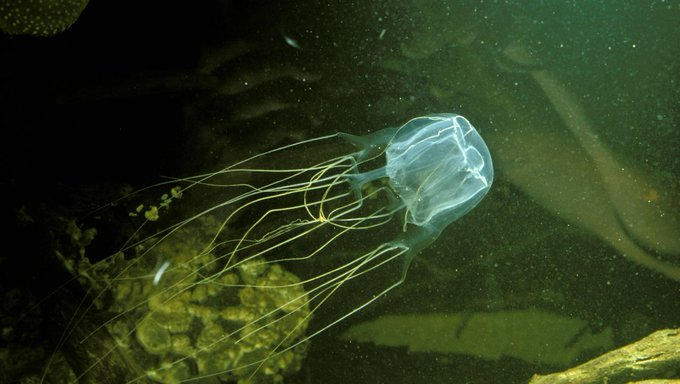A 17-year-old Australian boy died after being stung by box jellyfish while swimming at a beach on Queensland's western Cape York. Known as the most venomous marine animal, the box jellyfish stung Tommy Johnson at Patterson Point near Bamaga on Feb. 22.
The teenager became the first victim to be fatally stung by the box jellyfish in Australia in 15 years. Johnson was the 79th victim of the fatal marine creature ever since Australia started keeping records in the late 1800s.

Johnson Died a Week After Being Stung
Following the incident, Johnson was reportedly rushed to Townsville Hospital for treatment but died on March 1. Speaking to The Guardian, a spokesperson for the Royal Flying Doctor Service said that Johnson was stabilized by a team of medical experts from Cairns and later shifted to the intensive Care Unit of Townsville hospital.
Marine biologist and jellyfish expert Dr Lisa-ann Gershwhin said there is a need for better resources and education for remote communities. "As a country we need to do better. There's education programs, there's stinger nets, there's protective clothing. There's all these things that we use in the more populated areas of Queensland, in Cairns, Townsville and Mackay. But up on the cape, sadly, we really don't. We don't have those programs in place and I think we have absolutely failed our remote communities. We have miserably failed, and this poor young man, and his family and his community are paying the price for that failure," said Dr Gershwhin.
The Australian reported that the Northern Peninsula Area Regional Council issued a statement warning children to stay out of the water. "Please advise your children not to go swimming at this time of season. Parents, we cannot stress enough how important it is to keep your children away from the water. There has been a report of children swimming down at the Seisia Wharf, and we would like to remind the community it is still stinger season," the statement read.
Box Jellyfish 'locks the heart' With Its Sting
Box jellyfish, also known as Chironex fleckeri, derives its name from its shape. A regular occurrence during the warm months of the Northern Queensland coast, the box shaped creature has long barbed tentacles which are covered in pockets of venom. When injected into people or animals, it can lead to paralysis, cardiac arrest and death, BBC reported.
Explaining the manner in which the box jellyfish becomes deadly, Gershwhin said that its sting "locks the heart" in a contracted state.
"When that happens, things go very bad, very quickly and irreversibly. Because you cannot unlock a clenched heart. You cannot unclench a clenched muscle. So you can't CPR it because there's no passage for the blood to fill and be compressed and a defibrillator doesn't work because it's not going to be doing that. So the name of the game isn't to rely on the treatment, because in most cases the treatment just isn't fast enough. You can't outrun that clenching of the muscle," she said.









